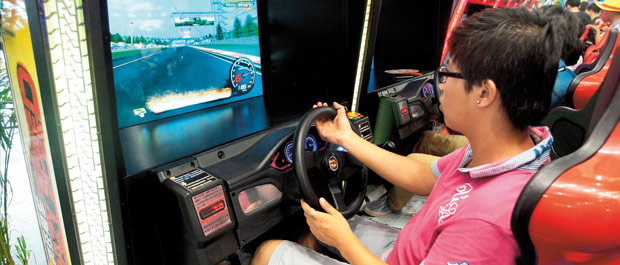So you’re a “Call of Duty” vet. You’ve spent hours simultaneously scanning maps, obliterating bad guys, and chatting with fellow gamers. Nothing gets by you. Surely you can navigate the perils of talking on a cell phone while driving.
According to a study at Duke’s Visual Cognition Laboratory, not so much.
In the study, Stephen Mitroff, an associate professor of psychology and neuroscience and member of the Duke Institute for Brain Sciences, measured the multitasking ability of sixty undergraduates, about half of whom said they played shooter-style video games regularly. The students completed three visually oriented tasks—a video driving game, a multiple-object racking test, and a pencil-and-paper puzzle—and then repeated the tasks while answering Trivial Pursuit questions over a speakerphone, meant to simulate the distraction of a cell-phone conversation.
Both gamers and non-gamers fared worse on all three tests when answering questions. Gamers’ best performances came in the video driving game. While non-gamers were on average ten seconds slower in completing the game’s race course while talking, gamers lost only about two seconds.
Although the performance loss may seem modest, Mitroff says it shows why for most people multitasking isn’t a good idea. “It doesn’t matter how much you’ve trained your brain; we just aren’t set up to do this,” he says.

Share your comments
Have an account?
Sign in to commentNo Account?
Email the editor